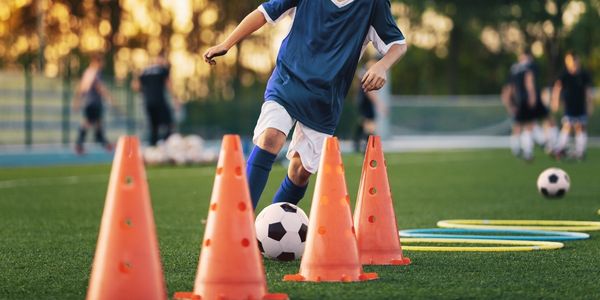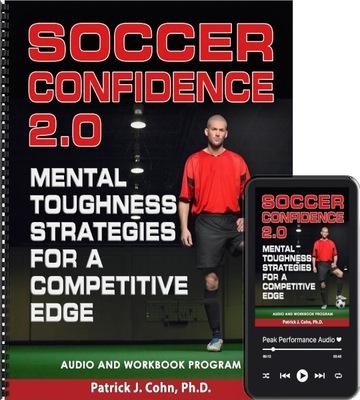
Have You Ever Suffered an Injury that Sidelined You?
Athletic injury may be the toughest circumstance for an athlete to handle. Not only is there physical pain, but the mental and emotional distress can be overwhelming.
No matter what part of the season occurs, the challenges are tough to handle. Maybe you can relate to the following scenarios:
* EXAMPLE #1: Preseason/ Early Season – You are excited to get on the pitch as the new season starts. Motivation is high as you prepare for a new beginning and new goals. However, an early-season injury can zap those positive feelings quickly. You feel anxious that your injury will hurt your training and conditioning. In addition, you wonder if your playing time will be in jeopardy.
* EXAMPLE #2: Mid-season – You worked hard all season and have seen much improvement in your skills and play on the pitch. An injury at this point can feel deflating. All your efforts feel like you wasted your time, and you fear you will not accomplish your goals.
* EXAMPLE #3: Playoffs/ Tournaments – You are having a breakout year. You have been contributing to your team’s success all year. Now, it’s crunch time, and your team is firing on all cylinders. An injury during tournaments or playoffs makes you feel you are letting down your teammates and coaches. You wonder why this happens to you. You feel down, frustrated, and overwhelmed.
Adopting the right mindset is a crucial step in the injury management process.
A Healthy Mindset Includes the Following:
* Deal with the emotions – Injury has an emotional impact on athletes. Dealing with your emotions helps physical and mental recovery.
* Focus on your rehab goals – Follow your physical therapy plan. Focusing on rehab improves the recovery rate and gives you a sense of control in the recovery process.
* Stay connected – Maintain contact with your teammates and coaches. When you are injured, you need support from your team, family, friends, support staff, and mental game coach.
* Make positive use of your time off the pitch – Use your time away from competing to develop interests/ hobbies outside of sport. Becoming well-rounded is crucial for your overall development as a person.
USWNT midfielder Sam Mewis injured her knee, which required surgery, and will likely sideline her for the 2023 Women’s World Cup. The long-term injury is her second knee injury in three years. Mewis will also miss the upcoming NWSL season.
Mewis commented on her feeling about the injury and her mindset for rehab.
MEWIS: “This has been a really difficult time for me personally and I’ve been devastated to be away from soccer so long. I don’t have a timeline for a return to soccer, but I will give my best effort in my recovery as I always have.”
To recover more quickly, ask for help when you need support, focus on your rehab, and maintain a positive perspective.
Tip for Managing Long-Term Soccer Injuries:
You should never go through the injury process alone. Rely on others for support. Talk to your coach or seek a Mental Game Coach to discuss how to deal with your injury challenges.
Related Sports Psychology Articles
- Returning to Soccer after Injury
- How to Cope with The Mental Scars After Injury
- How to Regain Confidence After An Injury
- Subscribe to The Sports Psychology Podcast on iTunes
- Subscribe to The Sports Psychology Podcast on Spotify
Download a free sports psychology report to improve your mental game!
Learn more about our one-on-one mental game coaching.
Boost Confidence in Soccer

“Soccer Confidence 2.0” 3-CD and Workbook program is the most comprehensive mental game program we’ve offered to the public. We’re virtually giving away all our mental game secrets for the incredibly low price of only $197.00 including the free bonuses!
“Soccer Confidence” is a complete brain dump of the TOP NINE mental training sessions we teach our soccer players to help them boost their mental game and improve consistency – from how to mentally prepare for games to performing under pressure to building unstoppable confidence.
